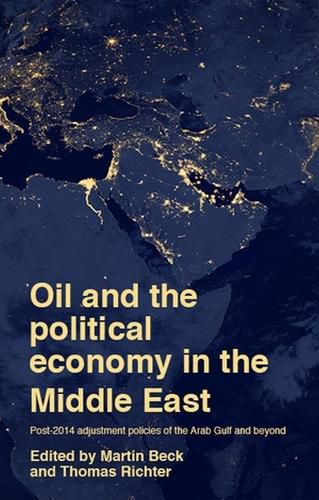Readings Newsletter
Become a Readings Member to make your shopping experience even easier.
Sign in or sign up for free!
You’re not far away from qualifying for FREE standard shipping within Australia
You’ve qualified for FREE standard shipping within Australia
The cart is loading…






The downhill slide in the global price of crude oil, which started mid-2014, had major repercussions across the Middle East for net oil exporters, as well as importers closely connected to the oil-producing countries from the Gulf. Following the Arab uprisings of 2010 and 2011, the oil price decline represented a second major shock for the region in the early twenty-first century - one that has continued to impose constraints, but also provided opportunities. Offering the first comprehensive analysis of the Middle Eastern political economy in response to the 2014 oil price decline, this book connects oil market dynamics with an understanding of socio-political changes.
Inspired by rentierism, the contributors present original studies on Bahrain, Egypt, Jordan, Kuwait, Lebanon, Oman, Qatar, Saudi Arabia, and the United Arab Emirates. The studies reveal a large diversity of country-specific policy adjustment strategies: from the migrant workers in the Arab Gulf, who lost out in the post-2014 period but were incapable of repelling burdensome adjustment policies, to Egypt, Jordan, and Lebanon, who have never been able to fulfil the expectation that they could benefit from the 2014 oil price decline.
With timely contributions on the COVID-19-induced oil price crash in 2020, this collection signifies that rentierism still prevails with regard to both empirical dynamics in the Middle East and academic discussions on its political economy. – .
$9.00 standard shipping within Australia
FREE standard shipping within Australia for orders over $100.00
Express & International shipping calculated at checkout
The downhill slide in the global price of crude oil, which started mid-2014, had major repercussions across the Middle East for net oil exporters, as well as importers closely connected to the oil-producing countries from the Gulf. Following the Arab uprisings of 2010 and 2011, the oil price decline represented a second major shock for the region in the early twenty-first century - one that has continued to impose constraints, but also provided opportunities. Offering the first comprehensive analysis of the Middle Eastern political economy in response to the 2014 oil price decline, this book connects oil market dynamics with an understanding of socio-political changes.
Inspired by rentierism, the contributors present original studies on Bahrain, Egypt, Jordan, Kuwait, Lebanon, Oman, Qatar, Saudi Arabia, and the United Arab Emirates. The studies reveal a large diversity of country-specific policy adjustment strategies: from the migrant workers in the Arab Gulf, who lost out in the post-2014 period but were incapable of repelling burdensome adjustment policies, to Egypt, Jordan, and Lebanon, who have never been able to fulfil the expectation that they could benefit from the 2014 oil price decline.
With timely contributions on the COVID-19-induced oil price crash in 2020, this collection signifies that rentierism still prevails with regard to both empirical dynamics in the Middle East and academic discussions on its political economy. – .